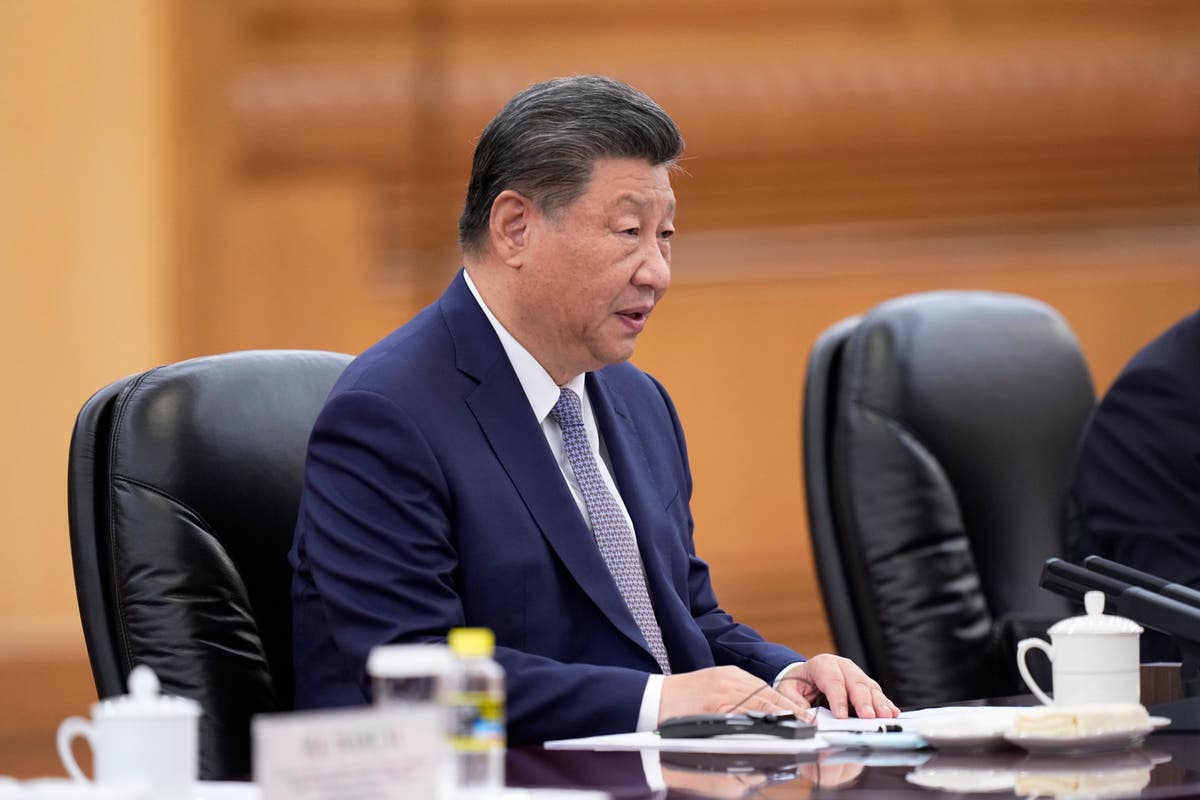The U.S. and South Korea have called on China to use its influence over Russia and North Korea to prevent escalation after Pyongyang sent thousands of troops to Russia to aid Moscow’s war against Ukraine. Beijing has so far stayed quiet.
In a rare meeting earlier this week, three top U.S. diplomats met with China’s ambassador to the United States to emphasize U.S. concerns and urge China to use its sway with North Korea to try to curtail the cooperation, according to a State Department official, who spoke on condition of anonymity.
Secretary of State Antony Blinken said Thursday that the sides had “a robust conversation just this week” and that China knows U.S. expectations that “they’ll use the influence that they have to work to curb these activities.”
“But I think this is a demand signal that’s coming not just from us, but from countries around the world,” he said at a news conference in Washington with Defense Secretary Lloyd Austin and their South Korean counterparts.
The U.S. says 8,000 North Korean soldiers are in Russia near Ukraine’s border and are preparing to help the Kremlin fight against Ukrainian troops in the coming days.
Beijing has forged a “no limits” partnership with Moscow, and while it has been a major ally for Pyongyang, experts say Beijing might not approve of the closer military partnership between Russia and North Korea because it sees it as destabilizing in the region.
When asked about a meeting between U.S. and Chinese diplomats, Lin Jian, a spokesman for the Chinese foreign ministry, said at a briefing Wednesday in Beijing that he had “no information to provide.”
He added that China’s stances on Ukraine and on the Korean Peninsula have been consistent. China has called for a cease-fire and urged peace talks to end the war in Ukraine. And it has long advocated for a peaceful and stable Korean Peninsula.
The Russia-North Korea partnership runs contrary to Beijing’s goal for a peaceful Korean Peninsula, said Shi Yinhong, an international relations expert at China’s Renmin University.
Beijing is “aware of the complexity and danger of the situation,” Shi said, noting that the “fact that China hasn’t said anything yet on the military alliance agreement between North Korea and Russia indicates that China strongly disagrees with it.”
Dennis Wilder, senior fellow for the Initiative for U.S.-China Dialogue on global issues at Georgetown University, called Beijing’s “radio silence” on North Korea’s move “staggering.” He said Beijing must find a balance between supporting Moscow and not angering the West, and that Chinese President Xi Jinping might “for his own sake ignore the whole thing.”
Xi has built a personal relationship with Russian President Vladimir Putin, and “he cannot see Putin fail,” Wilder said this week at a panel discussion hosted by the Washington-based think tank Center for Strategic and International Studies.
At the same time, Xi cannot anger the Europeans and Americans when his country’s economy is struggling, Wilder said.
“So he’s not going to say anything publicly about this,” Wilder said.
Austin said Thursday that China “should be asking Russia some hard questions at this point and whether it intends to broaden this conflict by this kind of behavior.”
Deputy Secretary of State Kurt Campbell, Assistant Secretary of State for East Asian and Pacific Affairs Dan Kritenbrink and Assistant Secretary of State for European Affairs James O’Brien met with Chinese envoy Xie Feng in Washington on Tuesday, according to the State Department official, who would not detail the Chinese response.
Lu Chao, director of the Institute of American and East Asian Studies at Liaoning University in China’s northeastern province of Liaoning, said the U.S. should not expect China to manage North Korea.
“As for the issue of the Korean Peninsula, China is a friend of both North Korea and South Korea. It is not the case that China is responsible to manage North Korea and the U.S. is responsible for managing South Korea,” Lu said. “I hope the U.S. government could understand China’s stance.”
Lu also said the troop deployment is “a matter between Russia and North Korea,” while China’s attitude remains unchanged that the conflict should not be escalated but be resolved with a political solution.

